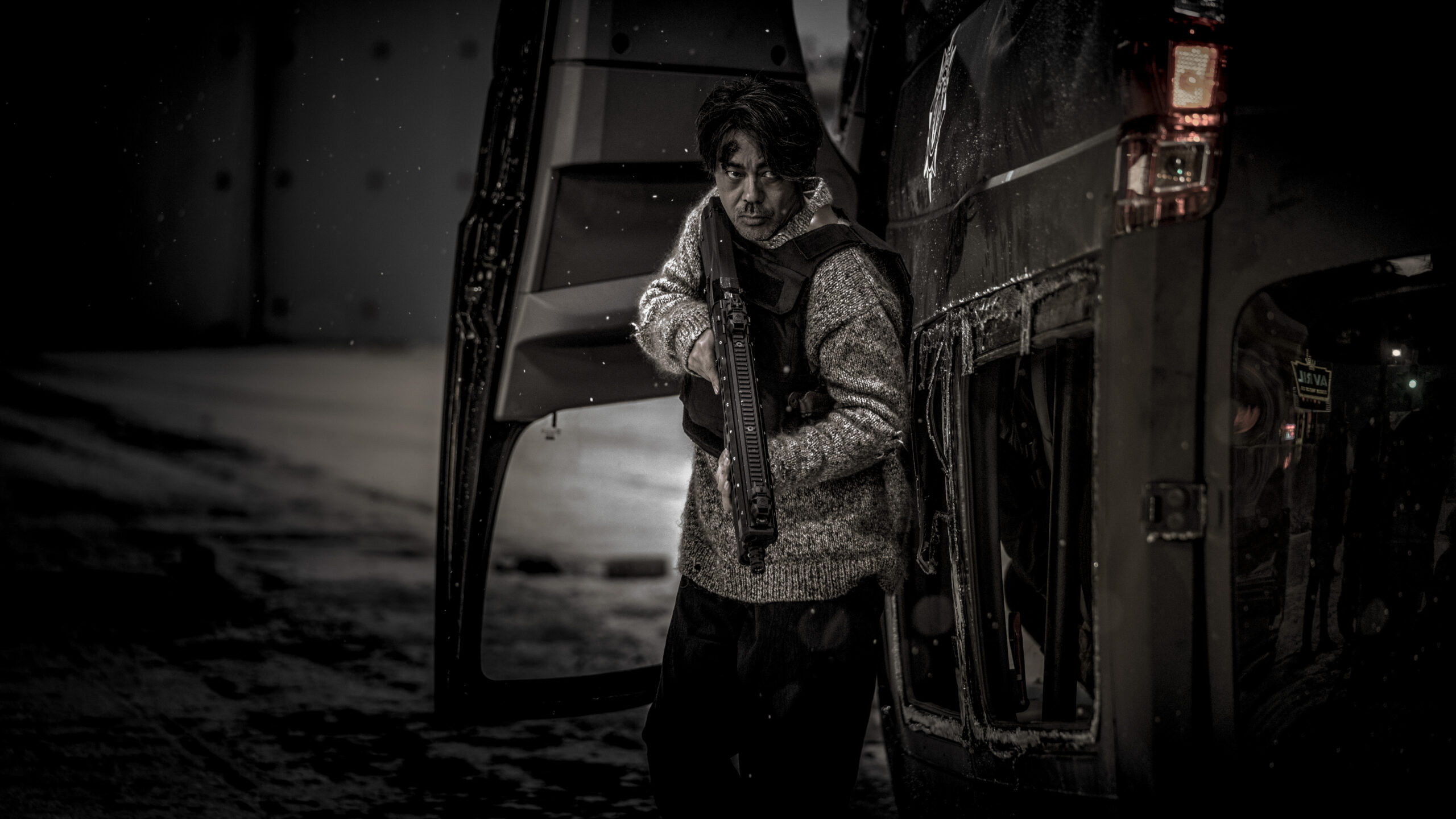Having time to formulate your thoughts is a luxury you’re unlikely to find at a festival like Cannes. Nevertheless, this dispatch features three films I’ve taken time to mull over, reconsider, and chew through. Even the biggest miss among the three (”Sons of the Neon Demon”) required a bit of thought before I dismissed it. See, often at a festival, it’s difficult to differentiate whether the movie simply isn’t working or you’re far too hungry, tired, or burned out (I’ve been averaging around 4-5 movies a day here). Luckily, I did find some space to turn things over, with the first film in this dispatch benefiting the most from my various rethinks.
I’m not sure if Japanese writer/director Chie Hayakawa’s glacially paced semi-autobiographical coming-of-age film “Renoir” is a great movie. But the Competition selection is so clearly the film the director not only wanted to make, but also needed to finish. Delicate and aching, the film’s interest in youth and death is a thematic graduation from Hayakawa’s dystopian debut “Plan 75,” which considered the travails of age from the perspective of a lonely elderly woman. In “Renoir,” the subject is 11-year-old Fuki Okita (Yui Suzuki), and Hayakawa’s preferred setting shifts the not-too-distant future of “Plan 75” to the summer of 1987. It’s during this summer Fuki and her mother Utako (Hikari Ishida) live with the reality that Fuki’s father Keiji (Lily Franky) is dying of cancer.
Hayakawa’s “Renoir” isn’t the kind of film that moves with noticeable emotion. Similar to Yasujirō Ozu—Hayakawa often utilizes the same type of classical framing employed by the old master—this is a film that steps to a delicate rhythm whose echo isn’t heard until the very end. Because “Renoir” isn’t really about the immediate grappling of a parent’s death, the sort that happens when the passing is sudden. It’s intrigued by the suspension of grief, and the longing and recklessness it can produce. It wonders aloud how one can simultaneously continue living even while their life is momentarily paused.
For Fuki’s mother, the slow decline of her husband offers the opportunity to search for a specific kind of love and companionship she was never granted in marriage. For Fuki’s father, hospice becomes purgatory: He can’t leave, die, or be cured. All he can do is beg for more time as the discontent many feel toward him finally rises to the surface. The potential loss of Fuki’s father pushes her to seek out tangible bonds by listening in on a dating hotline. She takes in calls from lonely, desperate people also looking for a modicum of care. On one hand, Fuki’s adventures on the hotline and elsewhere will put her in jeopardy. On the other hand, her unbowed, mischievous spirit throughout her father’s ordeal—effectively rendered by a brilliant Suzuki—protects her from feeling the worst life has to offer, even if only temporarily.
Still, “Renoir” can be a frustrating watch. Scenes stretch on far beyond their natural endpoint, causing one to wonder if Hayakawa is far too close to her subject to kill some darlings. But that unhurried pace is a feature, not a glitch. The elongated sequences, which appear to defy conventional notions of time, match the sustained listlessness and immobility one experiences while watching a loved one slowly waste away. Losing a father is the kind of grief with waves that continue to hit even when the tide appears to lighten. It’s why “Renoir” can appear to be overly cute, when in fact, it’s putting on a face. It’s why the other end of the echo can be heard toward the film’s conclusion, when Fuki imagines one more brief moment with her father. She has the kind of dream you know can’t be real. But like the film itself, it’s the type of charade that you allow your imagination to follow because the vision feels so warm.

“Sons of the Neon Night,” a midnight selection, is a disturbingly bad, wildly incoherent Chinese crime action-thriller. Juno Mak’s film begins with an explosive set piece, a gang of hired guns unleashing a flurry of bullets into a bustling crowd on a snowy urban street: Bodies go flying, cars flip, and trucks crash. The bloody sequence is the height of an overwrought movie that summarily tumbles. Soon, we jump to a hospital where a police mole walks in with a bomb, decimating an entire building housing the terminally ill mobland crime lord Park Li. The film only unravels further from there.
Mak’s misguided “Sons of the Neon Night” introduces innumerable characters, each more miserable than the last. Li’s son Moreton (Takeshi Kaneshiro) and his partner Siyan Lau (Gao Yuanyuan) angle to seize control of his father’s Q-In pharmaceutical empire from his exiled brother’s desire to up illegal drug selling; the crooked cop Detective Wong (Sean Lau) aims to avoid the ire of his shady colleague Uncle Bullet (Tony Leung Ka-fai) while continuing his drug trade; the regretful assassin Ching Man Sing (Louis Koo) works what he hopes will be his final jobs. We never stick with any of these characters long enough to feel anything but exhaustion at the sight of their underworld plights. Rather, Mak leans on copious bloodshed and clumsily moving parts to keep interest in a story that invites a stiff sleeping pill more than any thrills.
Worst yet, for a film with the word “neon” in the title, it’s so colorless and blank, matching a righteous self-seriousness that itself can barely be taken seriously. Mak’s aesthetic language of gritty grey sucks the life out of every scene, confusing smokiness with intrigue. When the action does occur in rapid freak-outs and dull shootouts, it’s gratuitous, neither advancing the story nor providing its own narrative about the characters or their world. These sequences can be summarized as just bodies flying toward destinations unknown. With an overblown 132-minute runtime that lacks rhythm, punch, and substance, like its audience, “Sons of the Neon Demon” merely peters out.

Raoul Peck is one of our great political filmmakers. His chronicling of the lives of Karl Marx, Patrice Lumumba, Ernest Cole, James Baldwin, and more is enriched by his uncanny use of primary sources: personal journals and letters, archival footage, and film clips—aligning with his rebellious personal politics. It therefore makes perfect sense that he’d be keen to cover dystopian author George Orwell, a writer whose critiques of totalitarianism have often been evoked to warn against the rise of every possible fascist police state. Peck’s latest film, “Orwell: 2+2 =5,” itself a reference to 1984, is a passionate but scattered retelling of the author’s varied life and declining health, and his importance to today’s world.
Similar to “Ernest Cole: Lost and Found,” Peck allows Orwell to tell his own story via readings voiced by Damian Lewis from his journal and letters. Peck then matches Orwell’s personal observations and his literary writing to create parallels between his works, such as Animal Farm and 1984, with the genocide in Gaza and the rise of Trumpism. These connections, no matter how true they are, aren’t exactly inspired. People have been comparing Trumpism to 1984 for nearly a decade now, so Peck is pretty behind the curve in that regard (truly, search Trump and Orwellian on Google, and you’ll get dozens of hits).
Instead, Peck’s most revelatory point comes when he takes aim at the prospects of AI. Peck sees AI’s potential as a tool for surveillance and predicting a person’s possible criminality as akin to “Big Brother is watching,” even providing a clip of “Minority Report” to hammer home the point. He also sees AI as a clear workers’ rights issue, and sometimes has tongue-in-cheek ribs against it: He openly uses AI art to poke fun at Trump and to show the danger it presents to create false narratives.
When Peck is making these intuitive, fire connections, “Orwell 2+2 = 5” is a frightening vision of life imitating art. But the director struggles to focus on specific themes, overloading the film by making as many links as possible. You sense the film is rushing and pushing to cram everything in: totalitarianism, AI, class, and Orwell’s life—in a kind of essayist screed. Along the way, Peck pulls clips from various cinematic adaptations of 1984, fashioning a collage meant to intensify the film’s many parallels. It’s a trick Peck has pulled off better in other places—“I Am Not Your Negro” and “Exterminate All the Brutes”—that does provide some moments of satisfaction here. Peck is capable of so much more. Even more frightening is the reality that “Orwell 2+2 = 5” would be far more chilling if we weren’t already trapped in a burning building.
On three films that required significant mullling over at Cannes. Read More


